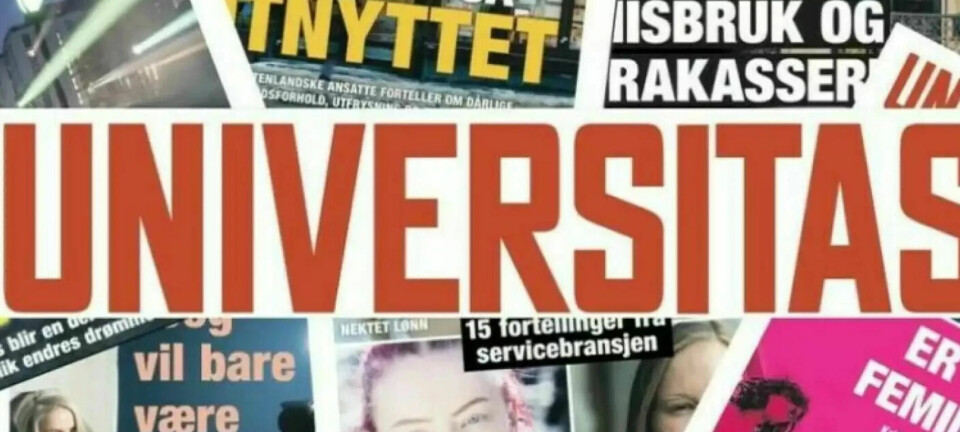
Cancellation of prestigious program motivated by alleged poor performance of international students
The Department of Political Science at UiO is seeking to dissolve Peace and Conflict Studies (PECOS). «It’s very hypocritical,» says PECOS student council member Victoria Ramm Henriksen.
«English-speaking students are overrepresented among students with the weakest exam results,» wrote the Political Science board in their recommendation to dissolve PECOS.
A dissolution of the popular program has been brewing for years now. The main issue has been a lack of resources, made more acute by budget cuts. But this time the department has added icing to the cake: international students’ academic shortcomings.
«Some international students struggle with their studies here, probably because they come from study environments where the emphasis is different, and there might be different goals than we typically focus on here at UiO,» explained department leader Anne Julie Semb in an email to Universitas.
All of this despite PECOS being one of the most prestigious programs in the Department of Political Science. Last year only 20 of the 205 applicants whose first choice was PECOS made it into the program – an admittance rate of only about 10 percent. Although it seems this would yield the cream of the crop, the department itself says students don’t live up to UiO’s study requirements.
Those enrolled in the program disagree with the department when it comes to the value of international students.
«With international students, we get points of view from all over the world. That’s what makes PECOS a unique place to learn. We really have to reflect on our views and arguments,» said Victoria Ramm Henriksen, member of the PECOS students council.
«UiO will lose a high-quality international learning environment. These students are motivated and ambitious. They want to get out there and solve global challenges,» said Kristian Muños Ledo Klakegg, international leader for the student parliament. «Through them, we can make more connections between Norway and other countries.»
«It’s very hypocritical»
A cancellation of PECOS would break with UiO’s ambitions. Increased internationalization and interdisciplinary studies are two goals the university set forth in the strategy for 2020. Both are considered important, and PECOS fulfills them.
In addition, UiO recently entered a partnership with the Peace Research Institute Oslo (PRIO). The basis of that partnership was for Oslo to become a global center for knowledge on peace and conflict – precisely what PECOS is about.
«It’s very hypocritical. At the same time, the rector [Ole Petter Ottersen] hasn’t commented yet. But there’s still a double standard there,» said Henriksen. «It seems very strange.»
Henriksen was also critical toward the department’s process around the cancellation. The student council only had one week to give any feedback on the recommendation. The document was also in Norwegian, meaning many members of the council could not understand what was written.
«The decision feels very rushed. Several members of the department board said they wanted more time to discuss it. It says a lot about the process that they didn’t take the time to talk about alternatives,» said Henriksen.
More consideration
Before the verdict is decided, there’s still a long bureaucratic way to go. The faculty board of the Faculty of Social Sciences will now vote on the case. If they decide to continue the process, it will go to the university board, who have the final word.
«We’re listening very carefully to those who actually run the program. The department knows best how they want to use their resources. But that doesn’t necessarily mean we’ll both end up with the same conclusion. There can be other considerations,» said Nils Henrik M. Von der Fehr, leader of the faculty board.
He has asked for additional information from the department, and received input from the student council.
«We’re trying to have the best process possible,» he said.
Even though both the student parliament and PECOS are working to keep the program, Klakegg is afraid the faculty board will follow the department’s recommendation.
«In academia, the opinion of those closest to an issue is taken very seriously. If something is decided on at a lower level, those higher up will often listen closely. It would take a lot to reverse this decision coming from the Department of Political Science,» said Klakegg.
«But it’s not impossible,» she emphasized.































